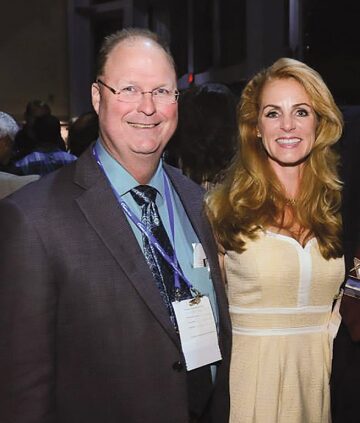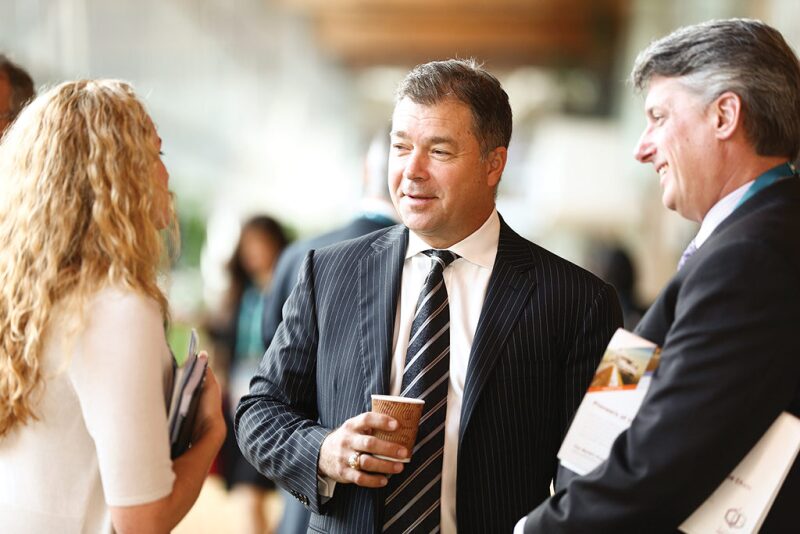The delicate balance of mentoring someone is not creating them in your own image, but giving them the opportunity to create themselves.

One of my focus areas as SPE President is strengthening the feedstock of incoming talent into our industry. In my January column, I talked about industrywide initiatives under way to attract and retain this talent. This month, I want to engage with our members on the importance of effectively mentoring these bright, young minds.
While I reflected upon setting my goals for the new year, I began to think about all of the important people in my career who not only helped me set high goals, but also provided support and guidance in achieving those goals. Some people were assigned to be my mentor, while others did it informally by providing advice during opportune moments. Truthfully, it does not matter how they became my mentor. The key point is that they were. Coaching a young professional in a technical position is critical to their success, but developing a person to have the interpersonal skills to navigate this industry is equally important.
For 2020, my goals include being both a mentor and mentee. While I believe I have much to contribute to our younger members, I also have much to learn. I want to encourage more of our members to set goals around mentoring and want to make this the month where we take time to recognize and thank those who have had a positive impact on us as our mentors.

Thank you, Don Patterson (retired Chevron), for mentoring me through my years of supervising workover rigs in northern Alberta. You were tasked with mentoring all the young engineers who were supervising rigs in northern Alberta, and phoning in our morning reports to you was often the most anxious part of our day. After looking back, your critiques were the necessary constructive feedback we needed. Fred Brownlee (retired Chevron) and John Patterson (retired ConocoPhillips) were two of my most influential mentors, both in helping me grow my technical skills and for connecting me with industry peers. Mike Mooney (retired ConocoPhillips) taught me how to be a great manager, how to conduct employee performance assessments properly, and how to set my focus on value-adding goals. Karen Draper (retired S&N Pump) and Carol Magney Grande (Magney Grande) provided mentorship on how to succeed in this industry as a working mother, and also gave me my first opportunity to serve on an SPE committee. Finally, I must thank Dr. Jeff Spath (SPE 2014 President). He became my mentor when I first served on the SPEI Board as a Technical Director and has continued to provide critical guidance and constructive feedback since. Without his help, I would not be writing this column as your 2020 SPE President.

While these individuals seem different, they all had common attributes that made them such great mentors. For one, they had an interest in making me successful. In addition, they listened to and guided me, rather than dictating. They shared their advanced industry knowledge and challenged me to realize my full potential. Many other individuals have been incredible mentors to me that I will also be recognizing this month.
The relationship between mentor and mentee is symbiotic. The mentor must be able to provide constructive criticism, and the mentee must be open to receiving it, willing to make necessary changes, and be committed to taking the actions required to change.
You can’t push anyone up the ladder unless he is willing to climb himself.
Being a mentor or mentee can either be a short- or long-term commitment. Personally, I get the highest satisfaction as a mentor from witnessing the growth in my mentees, so I commit to the period needed for that to occur and to ensure that they stay pointed in the right direction. One of my most rewarding experiences as a mentor was being the leader of a local Girl Scout troop. That is where I honed my skills around encouraging others to get out of their comfort zone, learn new skills, and work with others as a team. Trust me, if you can guide a group of young teenagers to stay focused on a task and work well together, you will be well-prepared to mentor anyone.
I believe that it is important to get different opinions and perspectives when seeking mentors. I always recommend having several mentors, like a personal advisory board made up of individuals who are in the positions that interest you and possess behaviors you want to emulate. It can be beneficial to have a mentor who interacts with you in your work environment and to witness those “coachable moments” first hand. The SPE eMentoring program is a great tool to find that industry colleague to get a different perspective from a distance.
The eMentoring program allows participating SPE members to communicate around the world at their convenience. It enables members to contribute to the future of the E&P industry by sharing their professional insight and practical career advice with young professionals. Mentors also give guidance to university students in academic direction and career choices. Young professionals have a unique opportunity to be mentored or to serve as a mentor to students to help ease their transition into the working world.
It’s an easy 6-month partnership, communicating 1–2 times per month via the eMentoring messaging system, email, Skype, face-to-face, or other forms of social media that have been mutually agreed upon. Partnerships can be extended 6 months at a time with the mentor’s approval. Mentors can mentor up to three mentees at a time while mentees can be connected to one mentor at a time.
To learn about the matching process of mentors and mentees in SPE’s eMentoring program, please check out the website at www.spe.org/ementoring. Currently, this program has 1,356 total members from 71 countries participating.
Mentors have a way of seeing more of our faults than we would like. It’s the only way we grow.
In summary, there is so much satisfaction to be gained from investing in someone’s career development as a mentor. There is also much to be gained from investing in yourself and seeking out being mentored. This month, I plan to focus on strengthening my relationships with my mentors and my mentees to ensure that my investments in both areas will realize maximum gains for all. I am grateful to those individuals who provided constructive criticism and thankful for their support as I implemented needed change. Being a member of SPE has enabled me to seek out the right mentors throughout my career by providing opportunities to meet and connect with them. I encourage my fellow SPE members to reach out and become a mentor or mentee. If we help one another to become better contributors and innovators, we not only elevate our society but the industry overall.
Who has been your most influential mentor and why? Please send your response to president@spe.org.
To hear Shauna’s President’s Column via podcast, please go to www.spe.org/en/podcasts.

